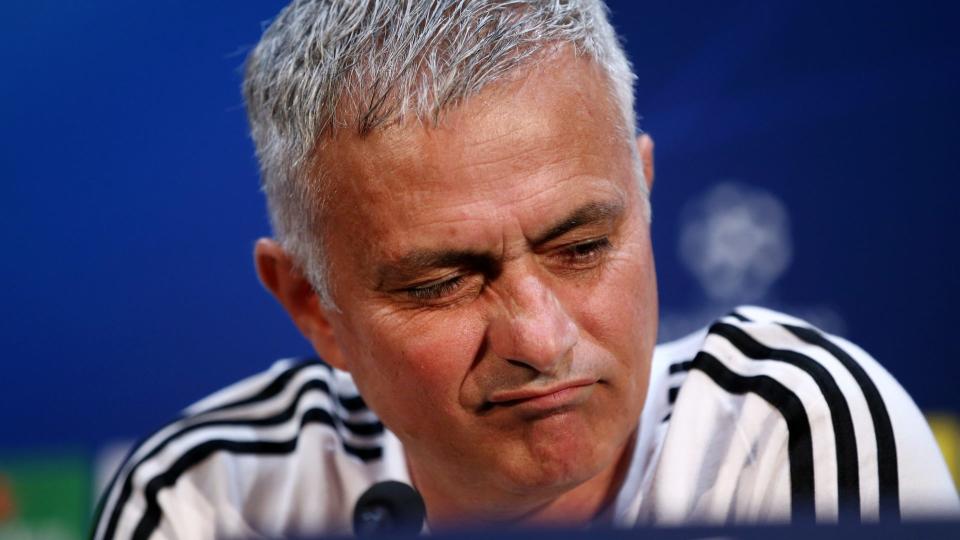How Real Madrid's Santiago Solari is making the case for the unproven manager
Maybe, in spite of everything we think we know, it works better this way. Maybe experience in management is overrated. Maybe this is the new model.
Suddenly, inexperienced managers seem to be thriving in unexpected places. Ole Gunnar Solskjaer has turned Manchester United around from the death spiral it had hurtled into under Jose Mourinho. That would be the Solskjaer who had only a few years of managerial experience in his native Norway and all of eight months with Cardiff City, before becoming an emergency, mid-season caretaker appointment.
More impressively still, Santiago Solari has completely rectified Real Madrid’s disastrous season. Julen Lopetegui flamed out before October was up, and after club president Florentino Perez struck out with absolutely everybody in his Rolodex, he finally settled for his reserve team manager.
Solari, who spent a year playing at Richard Stockton College in New Jersey, of all places, before becoming an Argentine international, has lifted an aging and seemingly sated team from ninth place in La Liga to second and back in contention for the title – six points behind blood-rivals FC Barcelona. On Wednesday, Real beat Ajax 2-1 away, bringing a place in the quarterfinals of the Champions League well within reach. And following the first leg of the semifinal of the Copa del Rey with Barca, a 1-1 away draw, even a treble is still conceivable.
Solari’s success may seem unlikely, but it is hardly unprecedented. And it suggests that there’s real merit to appointing fairly inexperienced managers.

Lopetegui’s predecessor, Zinedine Zidane, had only managed Real’s reserve team when he, too, was cast into the big job mid-season in Jan. 2016. He summarily won the Champions League three times in his two and a half seasons in charge. That ties him as the most successful manager in Europe of all time.
Vicente del Bosque was another of Real’s impromptu hires in November of 1999. He’d been the club’s caretaker twice and coached its reserve team for a spell, but this was his first real appointment too. Del Bosque won the Champions League twice and La Liga twice. But after his last domestic title, he was fired, because Real Madrid will always be Real Madrid. (He subsequently managed Spain to back-to-back World Cup and Euro titles.)
And of course, the managerial it-boy of the last decade, Pep Guardiola, was plucked from Barca’s reserve team just the same. He delivered three La Liga, two Copa del Rey and two Champions League trophies in just four years.
Like Solskjaer at United, Barca has also had good luck with managers who weren’t complete rookies but had only scant experience and seemed dangerously underqualified. When it appointed Frank Rijkaard, he’d been the national team manager of the Netherlands with mixed results and, ignominiously, led Sparta Rotterdam to its first-ever relegation from the Dutch Eredivisie.
Luis Enrique had flamed out in a single season with AS Roma and done decently with Celta Vigo in another one-year stint, before Barca hired him.
Both of them won La Liga twice and the Champions League once in the Catalan capital.
Aside from their inexperience, all of these green managers had something else in common when they were suddenly put in charge of a giant club: a ton of credibility from their playing careers.

It’s enough to make you wonder if this caliber of club is actually better off with a low-profile manager, provided he has the playing resume to convince his charges he knows what he’s doing. And it might just be a necessary shift in hiring strategy, too. These days, the game is unusually low on true super-managers. Most, like Mourinho, are badly tainted from a string of failures. Plenty have aged out, like Arsene Wenger, Guus Hiddink, Sir Alex Ferguson, Carlo Ancelotti, Louis van Gaal and the rest of their generation.
Really, it’s just Guardiola and Jurgen Klopp now. Maybe Mauricio Pochettino. And all three of them are firmly ensconced in their present job. Certainly, there aren’t enough of them to go around for the biggest clubs.
But the appeal comes not merely from mathematical necessity. In the age of total player power, it makes a certain amount of sense to entrust the running of the team to someone unlikely to overshadow his stars. At that level, the job is mostly to keep players happy and healthy. True tactical chess matches have become exceedingly rare, as the juggernaut teams roll over most of their opposition by the brute force of their much superior players.
Maybe, when so much of the best talent is consolidated at the top, the key competency for a manager at the elite level isn’t to draw tactics on a board but to exert a kind of soft power as a delicate mediator in politically charged locker rooms. Maybe a manager is just a glorified HR rep now.
Maybe it’s not as complicated as we make it anymore.
Or perhaps Solari and Solskjaer just make it all look simple.
Leander Schaerlaeckens is a Yahoo Sports soccer columnist and a sports communication lecturer at Marist College. Follow him on Twitter @LeanderAlphabet.
More from Yahoo Sports:
• PGA Tour pro defends paying caddie $5K on $1.3M win
• NFL bars NCAA’s all-time sack leader from combine
• Only one NBA team failed to scout Antetokounmpo
• Black History honor for Kaepernick sacked by lawmakers


